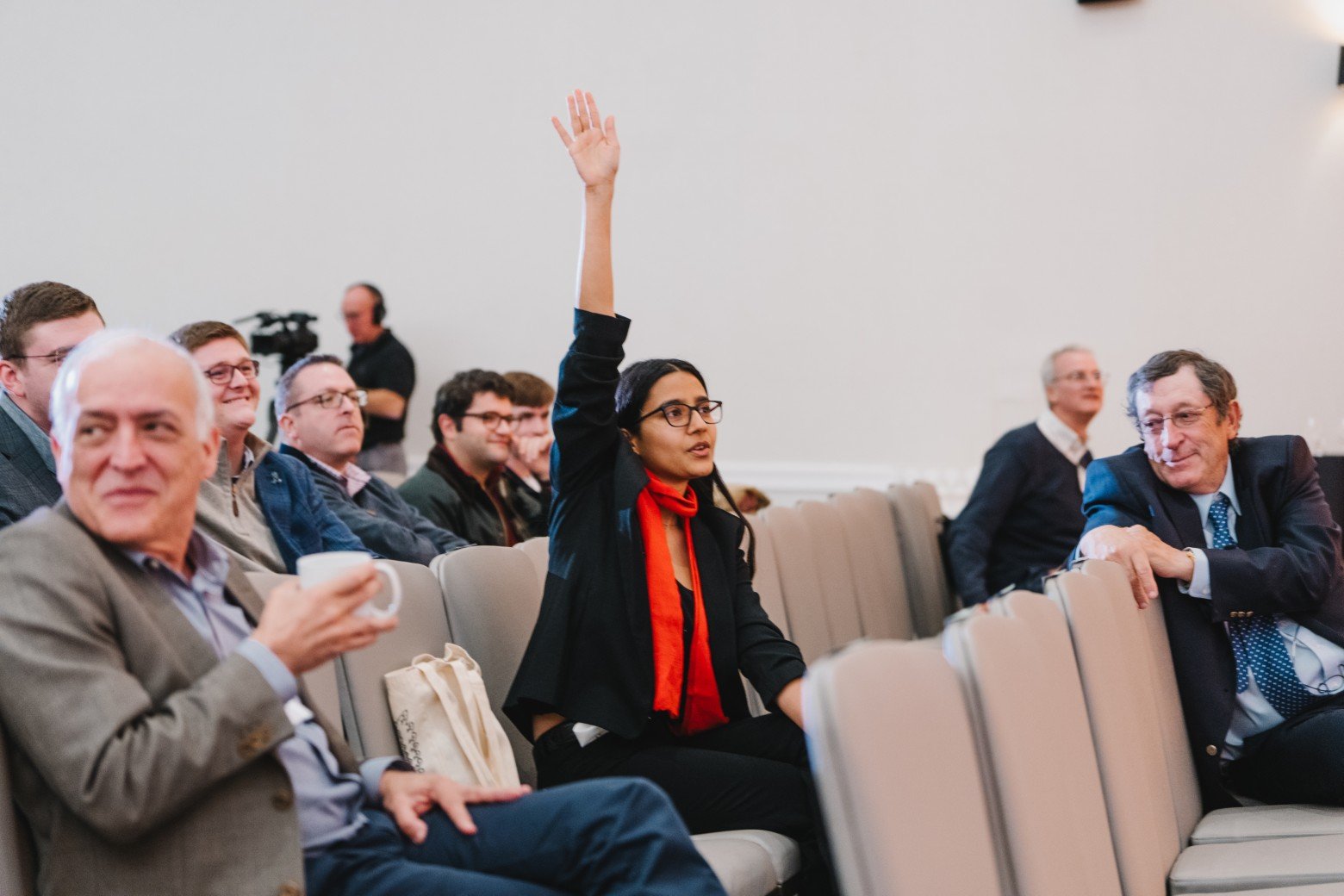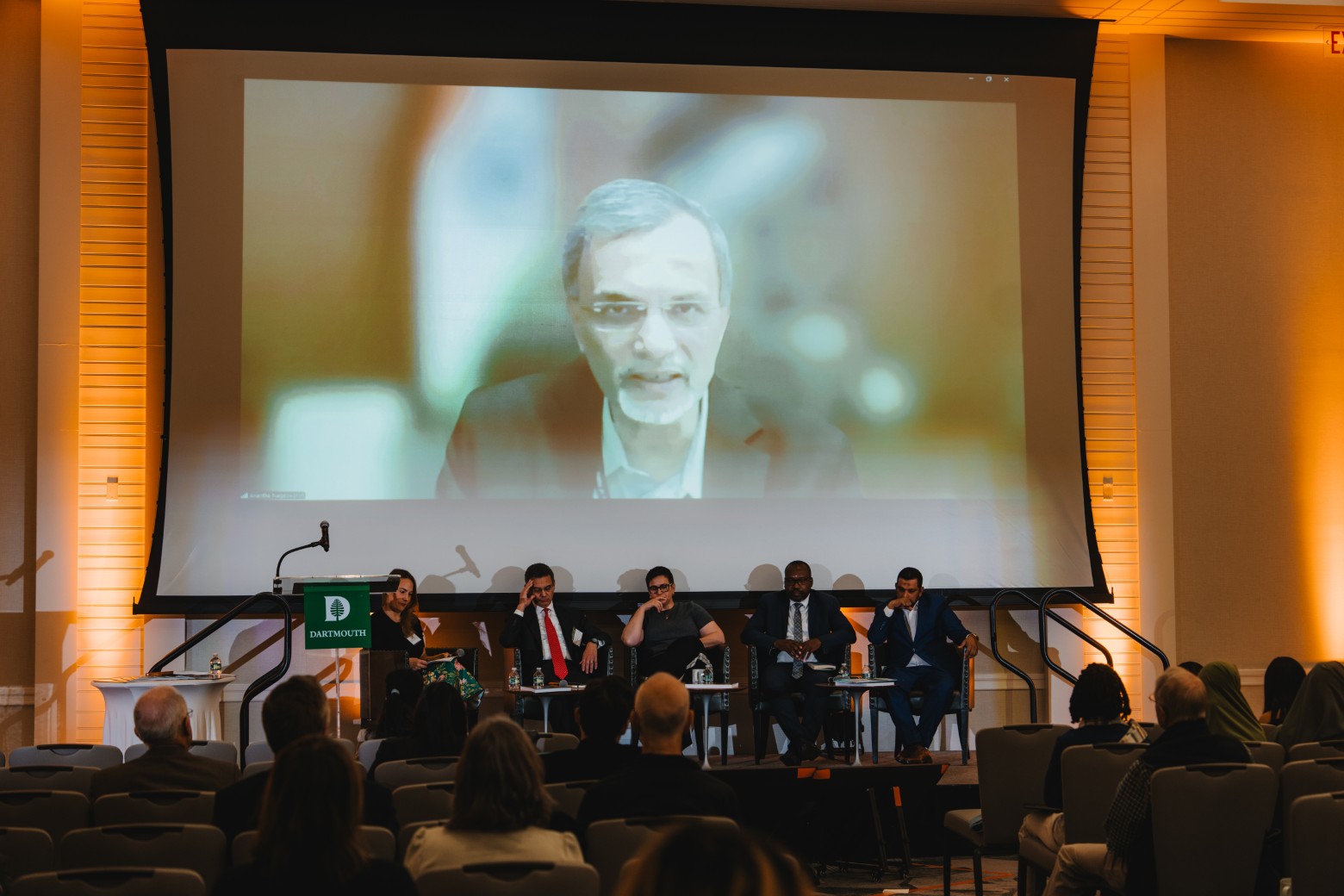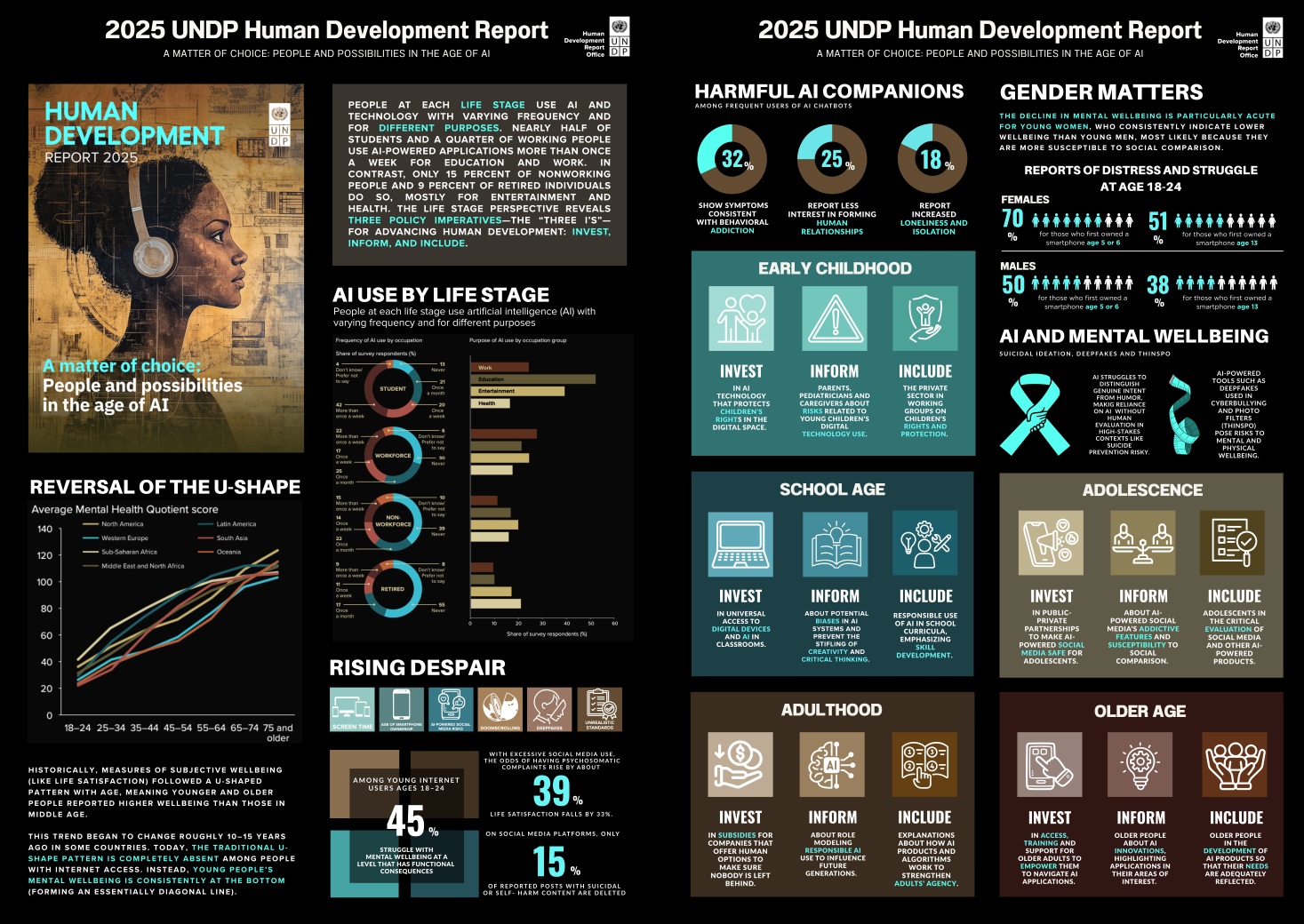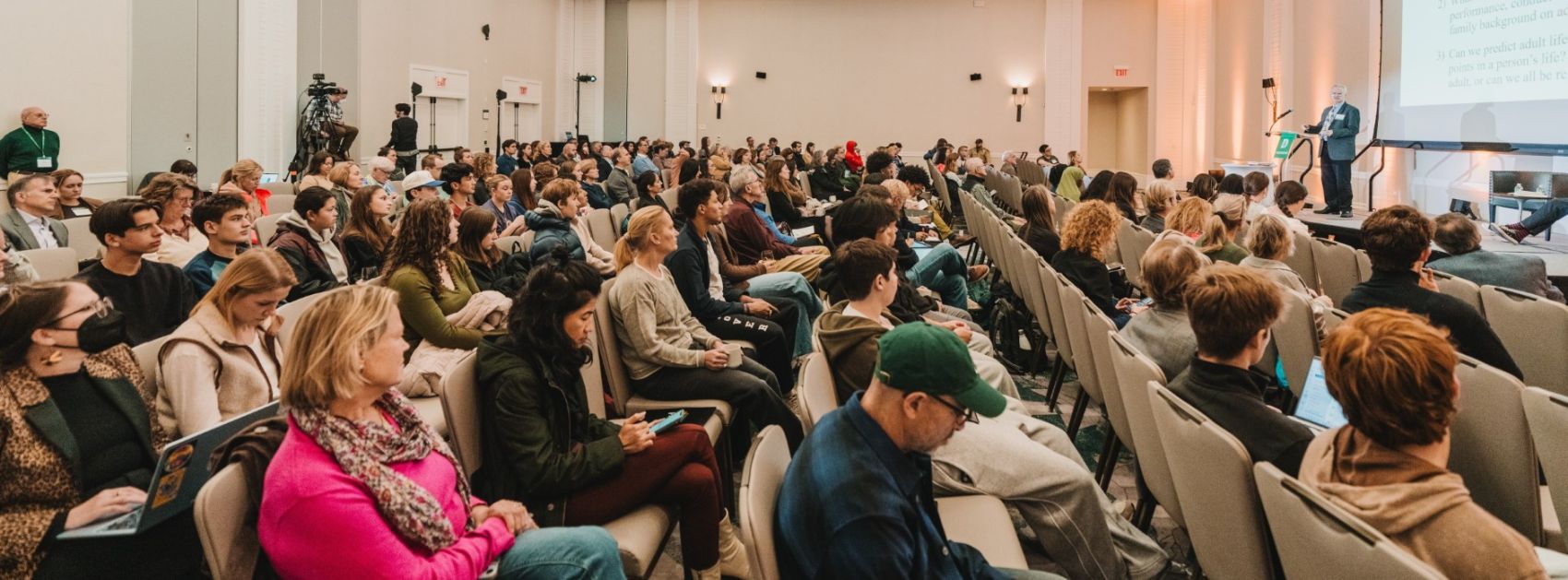From October 26–28, 2025, UNDP and Dartmouth College co-hosted a three-day symposium, A Global Turning Point: Why Youth Well-Being Is in Crisis—and What We Must Do About It, held both on the Dartmouth College campus and online. The Symposium built in part on the 2025 Human Development Report and drew on ongoing collaboration between HDRO and Dartmouth College, University College London, and the Sapien Labs, whose research documents a significant and widespread decline in youth mental well-being across countries—reversing the long-standing, robust, U-shaped relationship in wellbeing across the life course.
The symposium opened with a day of nature immersion and policy innovation talks to provide opportunities for participants to connect evidence with practice. Over the following two days, the event convened top academics in the field and global policymakers, such as the Indian Chief Economic Advisor, Members of Parliament from the European Union and Zimbabwe, and six former US Surgeons General, as well as leading public-, private-, and civil society-sector experts from the US, Brazil, Ukraine, Nigeria, and Bangladesh, to address this growing global challenge.
“We are really deeply honored to bring the best minds in the world on issues around young people’s mental health together for this historic symposium.” said Dartmouth College President Sian Leah Beilock in her remarks.

Key Findings
Research presented at the symposium highlighted a sharp decline in youth mental wellbeing since 2012, especially affecting young women and girls, unfolding in parallel with rapid digitalization, the spread of social media, and other changes ranging from dietary habits to a more polarized political environment. While the trend is most pronounced in higher income countries, it is evident across all regions and increasingly recognized as a social, economic, and development concern. For example, panelists noted that India now includes mental wellbeing in its annual economic survey; in Zimbabwe and Brazil it is emerging as development and education priority, whereas in Ukraine it has been integrated as part of national security and development concerns.
Distinguished scholars including Jonathan Haidt, Jean Twenge, and Robert Putnam emphasized that overexposure to attention-optimized digital platforms, reduced sleep, and social isolation are driving rising anxiety, depression, and disengagement globally. Economist David Blanchflower showed the disappearance of the historically robust U-shaped happiness curve across the life course, while Putnam argued for rebuilding social connection and collective action as pathways for fostering resilience and hope. The symposium also introduced preliminary Dartmouth Principles to guide global action on youth mental wellbeing, which will be made public once finalized.
Opening Session: Surgeons General Panel
Former U.S. Surgeons General Vivek Murthy, Jerome Adams, Joycelyn Elders, Richard Carmona, Antonia Coello Novello, and David Satcher highlighted alarming statistics. “When you have 31% of United States children, one out of three, having some kind of mental issue in the last 30 days, you have a problem,” said Novello, noting that one in five has considered suicide. The panel highlighted mental wellbeing as a national policy priority, and discussed the harmful effects of social media and digital platforms, including cyberbullying, loneliness, and body image pressures. They identified heavy social media use, reduced sleep, and social isolation as key drivers, urging immediate action—from establishing tech-free zones and delaying social media access to prioritizing prevention in mental health strategies.
“Mind Matters for Development: Why Care and How to Act?”

HDRO led a session titled “Mind Matters for Development: Why Care and How to Act?”, where HDRO Director Pedro Conceição emphasized that mental wellbeing is central to the human development agenda, drawing on findings from the 2025, 2023-2024 and 2021-2022 HDRs.
Discussing the role of social media and its harmful effects, Conceição pointed out that societies often end up in “bad equilibria”: many people wish to reduce their social media use but hesitate to do so because they fear being left out if others don’t follow suit. “It’s really something that we need to address at the collective level,” he said. “These are coordination problems, and coordination problems are much easier to solve and address because we all want the same thing,” Conceição added, expressing hope.
A global panel of senior policymakers discussed how the decline in youth mental wellbeing is manifesting across diverse contexts and underscored the need to address mental wellbeing as a core public policy priority, going beyond treating it as a health issue. Panelists called for proactive whole-of-society approaches to safeguard mental wellbeing in the AI era.
“Advancing Mental Wellbeing in Policy and Practice”
On the final day of the symposium, UNDP hosted “Advancing Mental Wellbeing in Policy and Practice.” Moderated by UNDP’s Policy Analyst Roy Small, the panel emphasized that mental wellbeing is a foundation for human development, not only a health-sector issue. Speakers highlighted the need for locally-owned context specific interventions to address the decline in youth mental wellbeing, and shared experiences of on-the-ground initiatives in Ukraine, Brazil, Nigeria, and Bangladesh.
UNDP Report on Youth Participation
To explore youth wellbeing in the context of political participation and civic engagement, see UNDP’s report Youth, Peace and Security: Fostering Youth-Inclusive Political Processes (February 2024). The report highlights barriers to meaningful youth participation in politics and civic life, providing practical recommendations, case studies, and strategies to foster youth-inclusive political processes globally. Read the report here.
Infographic: AI and Mental Wellbeing

Relevant Resources
